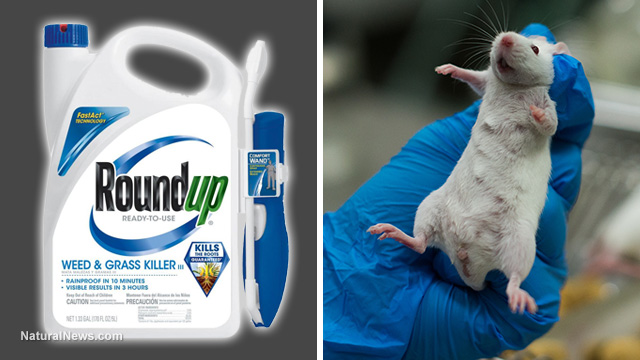In 2015, the world was finally given what it’s been waiting for: the truth. That’s right, the World Health Organization’s (WHO) International Agency for Research on Cancer (IARC) conducted a comprehensive review on the safety of the world’s most pervasive crop chemical, Roundup (glyphosate), and the jury is in: this ubiquitous herbicide does, indeed, appear to cause cancer in humans, affirming what independent science has been saying for years.
This announcement by the IARC is very good news for the millions of folks who’ve expressed concerns about Roundup being doused all over the food supply at the same time that chronic disease rates have soared, because it now means more scrutiny over its use. But this is also very bad news for Monsanto, the purveyor of Roundup, which is now actively countering the truth with more lies, going even so far as to push its own fake science in response.
Being the leader that it is on many human safety fronts, the state of California is pushing to have the IARC’s findings emblazoned on every single Roundup container sold in stores. Something along the lines of “this product may cause cancer” is what state officials hope to see present on Roundup products in the interest of public safety. And this is precisely the type of warning that Monsanto doesn’t want to print, as it means the corporation’s days are numbered.
The multinational chemical giant now resembles a feral animal that’s been backed into a corner, as it’s having to defend itself in court against thousands of lawsuits alleging that Roundup caused people to develop cancer. According to reports, Monsanto has banded together with other chemical companies to develop its own ministry of propaganda, known as the Campaign for Accuracy in Public Health Research (CAPHR), which is pushing the narrative that Roundup is safe.
Formed back in February by the American Chemistry Council, CAPHR represents the chemical industry at large, and has basically taken an offensive position against both the IARC and the WHO, which are no longer pushing the pro-chemical narrative. By bullying these United Nations entities, Monsanto and CAPHR are hoping to dispel the truth and keep on with business as usual.
“The purpose of the CAPHR is essentially to combat and discredit the International Agency for Research on Cancer (IARC) which is a unit of the World Health Organization,” writes Brandon Turbeville for Natural Blaze.
“Back in March 2015, an IARC scientific team declared glyphosate to be a ‘probable human carcinogen.’ The declaration came after an extensive review of the research published on the subject … Ever since, Monsanto and other multi-national chemical giants have gone after the IARC.”
Exposed court documents show Monsanto colluded with EPA to hide cancer-causing effects of Roundup
Another Monsanto ally — and the entity with perhaps the most power, at least in the U.S., to keep the lid on Roundup’s carcinogenicity for as long as possible — is the Environmental Protection Agency (EPA). The EPA has been peddling fake science on Roundup for many years, and evidence suggests that the agency has worked very closely with Monsanto to manufacture fake science in favor of Roundup.
Both the EPA and Monsanto are pegged in a new lawsuit as having colluded together to block attempts at investigating Roundup’s safety from taking place. Documents revealed before the court show that Monsanto even went so far as to ghostwrite fake science papers, with doctors’ names on them, that were actually written by Monsanto employees.
“The records suggested that Monsanto had ghostwritten research that was later attributed to academics and indicated that a senior official at the Environmental Protection Agency had worked to quash a review of Roundup’s main ingredient, glyphosate, that was to have been conducted by the United States Department of Health and Human Services,” a New York Times report explains.
“In one email unsealed Tuesday, William F. Heydens, a Monsanto executive, told other company officials that they could ghostwrite research on glyphosate by hiring academics to put their names on papers that were actually written by Monsanto,” the report adds, quoting Mr. Heydens as saying, “We would be keeping the cost down by us doing the writing and they would just edit & sign their names so to speak.”
A leaked phone conversation between a former EPA manager and a Monsanto regulatory affairs manager further indicts the chemical giant for illegally trying to thwart the safety testing process. Monsanto has apparently, on numerous occasions, sought the EPA’s help in stopping investigations into the safety of glyphosate, and this was just one of many instances that just so happened to be caught on tape.
Keep in mind that the EPA determined back in 1985 that glyphosate causes cancer, only to reverse that decision just six years later. Everyone who’s been paying attention knows why this decision was reversed, and it appears that the cat is finally out of the bag: Monsanto lied, and the truth is finally coming out.
Follow more news on glyphosate at Glyphosate.news.
Sources for this article include:


